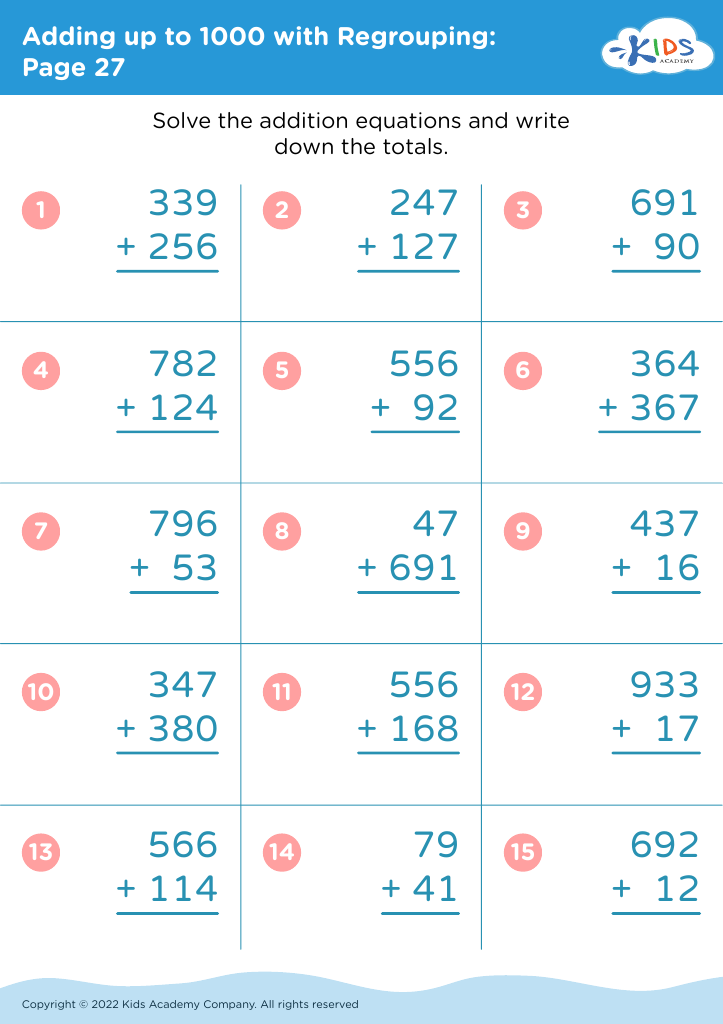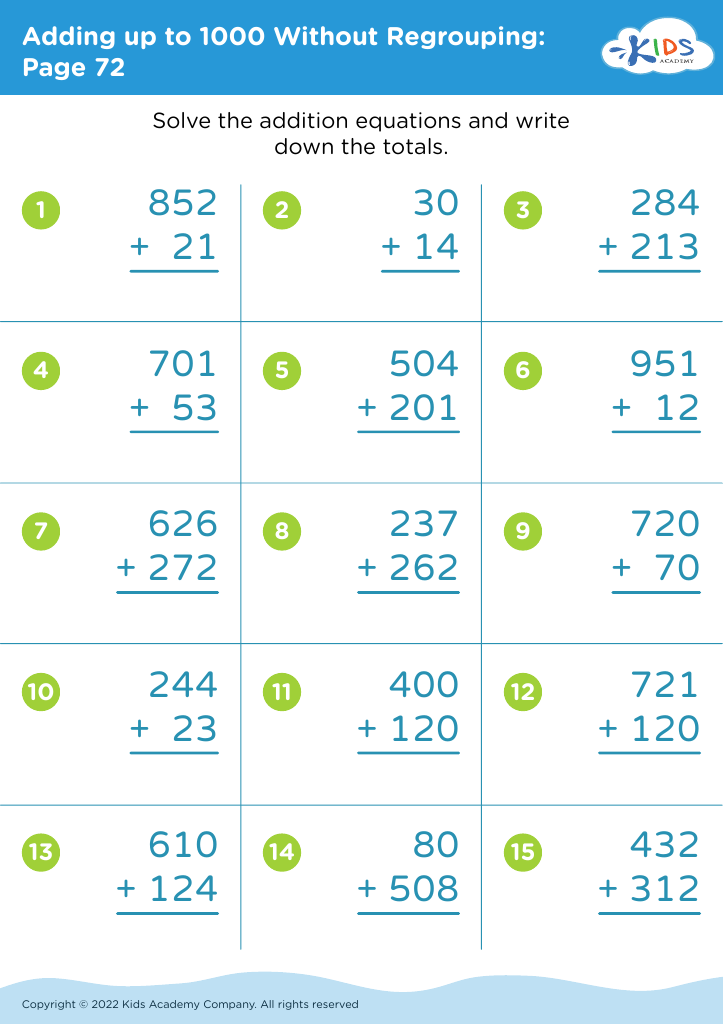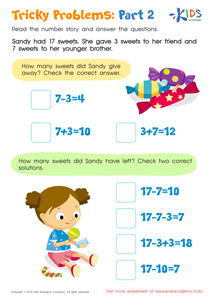Learn new vocabulary Grade 2 Adding up to 1000 Worksheets
3 filtered results
-
From - To
Boost your child's vocabulary and addition skills with our Grade 2 Adding up to 1000 worksheets! Tailored specifically for second graders, these printable worksheets seamlessly integrate new vocabulary words with essential math exercises. As children practice solving problems that add up to 1000, they simultaneously expand their language abilities by encountering and using new terms in context. These engaging activities help reinforce math concepts while building a robust vocabulary foundation, promoting both numerical and literacy proficiency. Unlock your child's full potential with our expertly designed worksheets that make learning fun, interactive, and educational. Download now and start exploring!
Parents and teachers should emphasize learning new vocabulary and concepts like adding up to 1000 in grade 2 because these foundational skills significantly impact a child's academic and cognitive development. By expanding their vocabulary, children enhance their communication skills, which are crucial for expressing themselves clearly and understanding instructions both in and out of the classroom. A rich vocabulary also aids in reading comprehension and boosts confidence in learning new subjects.
On the other hand, introducing concepts like adding up to 1000 strengthens mathematical skills that are vital for their overall education journey. Mastering addition at this level sets the groundwork for more complex arithmetic and problem-solving tasks they'll encounter in higher grades. It also incorporates critical thinking and logic, fostering an organized approach to tackling problems.
Moreover, early exposure to these skills can contribute to a child’s enthusiasm for learning by making challenging subjects more approachable and enjoyable. When children's vocabularies are robust, and their math skills are solid, they are more likely to be engaged and motivated in their education. Therefore, focusing on vocabulary and mathematical skills in Grade 2 is crucial for creating a strong educational foundation that will benefit children throughout their academic careers and beyond.


















